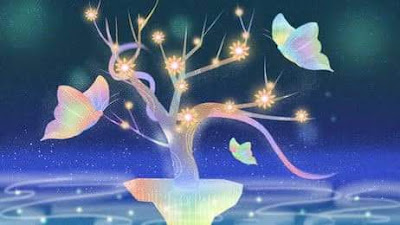The other day, I found myself reflexively saying “thank you” to a friend for something incredibly small—something that hardly required acknowledgment. Her response made me pause and think: why do we feel the need to express gratitude or apology for every minor gesture? Are these phrases really about respect, or do they sometimes reinforce a subtle imbalance, a quiet servitude in everyday interactions? This realization led me to question the deeper dynamics behind words like “thank you” and “sorry”—and whether, in certain situations, they may serve to elevate others at our own expense.
In everyday conversations, expressions like "thank you" and "sorry" are deeply ingrained. We say "thank you" when someone holds the door, and "sorry" when we brush past someone in a crowded hallway. But have these phrases, meant to signify kindness and politeness, become symbols of something more complex—perhaps even a subtle form of servitude?
To understand this, consider how often you say "thank you" or "sorry" in situations where they aren’t strictly necessary. For instance, you apologize for taking a moment longer in line at the grocery store or thank a colleague profusely for something minor. In these moments, the words are not only polite but also reinforce a certain dynamic. The other person is subtly elevated; their minor act of convenience or forgiveness is acknowledged as if it’s an extraordinary favor. The act of expressing gratitude or apology becomes less about authentic respect and more about reinforcing their social position, leaving you in a state of perceived indebtedness.
Historically, phrases like "thank you" and "sorry" served as essential forms of etiquette to smooth social interactions and minimize conflict. In societies built on rigid hierarchies, such phrases functioned as a way for people in lower social ranks to show respect to those above them. A servant would express gratitude toward their master not merely to be polite but to reaffirm the master’s elevated status. Though society has largely shifted away from strict hierarchies, these words still carry a trace of this dynamic. When used in excess or in situations that don’t warrant it, they might suggest an unintentional servitude, reinforcing an imbalance of power between individuals.
Interestingly, studies have shown that people who frequently use self-deprecating language, including "thank you" and "sorry," may subconsciously feel that they need to earn their place or prove their worth in social interactions. This isn’t to say that politeness is inherently negative; rather, it’s about the context in which these words are used. When we apologize for trivial matters, we may inadvertently reinforce the notion that our actions are intrusive or inconvenient to others. Similarly, over-thanking can suggest that we see ourselves as the undeserving beneficiaries of someone else’s time or attention, reinforcing a subordinate role.
In relationships where one person frequently expects apologies or expressions of gratitude for minor matters, a subtle power dynamic can emerge. The person receiving the constant “thank you” or “sorry” begins to feel superior, as if the other person owes them something, even if only subconsciously. This dynamic can lead to a sense of entitlement on one side and servitude on the other, affecting the balance of respect in the relationship.
So, how can we shift our perspective? Perhaps it’s time to reclaim the power behind these phrases by using them with intention rather than habit. Expressing genuine gratitude and apologizing when truly necessary remain important. But when used too freely, these words risk reinforcing dynamics that benefit neither party. Instead of reflexively saying "thank you" or "sorry" for every small gesture, consider whether a nod, smile, or simple acknowledgment might be more appropriate.
When we begin to choose our words with care, we avoid reducing ourselves in the process. By seeing "thank you" and "sorry" as tools for genuine connection rather than servitude, we uphold a sense of equality and self-respect in every interaction.
In the end, words like "thank you" and "sorry" have a unique power to both elevate and diminish us, depending on how we choose to use them. By being mindful of when and why we use these phrases, we can foster relationships built on genuine respect rather than perceived indebtedness. Manners, after all, should be tools for mutual acknowledgment, not mechanisms that subtly place us beneath others. When we speak with intention, we not only honor others but also uphold our own sense of self-worth, transforming these words from habits of servitude into expressions of true connection.
After all, the only way we can expect others to value our words is when we first learn their value ourselves. And something of value should not be strewn around recklessly, no? It should be handed over carefully to only those, who we are sure, will respect and acknowledge its value, and in time, pass it around with equal care and affection.








%20(26).jpeg)


